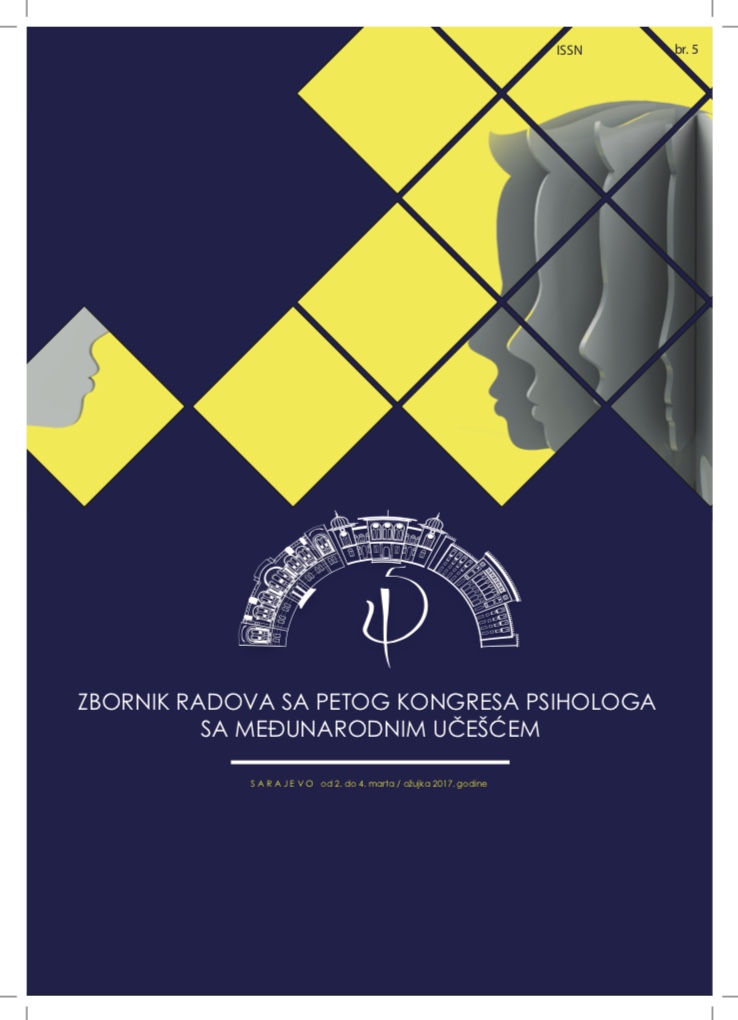Odnos neuroticizma i efikasnosti u rješavanju različito konotiranih anagrama
The effects of neuroticism on anagram solving arranged from differenty connotated words
Author(s): Valentina Ćurić, Maja PandžaSubject(s): Psychology
Published by: Logotip
Keywords: neuroticism;emotional stability;anagrams;word connotation;
Summary/Abstract: Aim of this research was to determine the possible effects of Neuroticism on anagram solving, arranged from differently connotated words. Condsidering that people high on Neuroticism are more sensitive and pay more attention to negative stimulus, it was hypothesised that this personality trait will have an effect on solving anagrams, constitued of differently connotated words. Based on pretest analysis, a list of 20 positively, 20 negatively and 20 neutrally connotated words was made for the main experiment. A total of 38 subjects participated in the main part of the research, of which 16 were high and 22 were low on Neuroticism scale. A 3x2 experimental design was made, where two independent variables were used: Neuroticism category (Neurotic and Emotionally Stable group) and anagram connotation (positive, neutral, negative). Anagram sovling efficacy was used as dependent variable and was operationally defined as „anagram solving time“ and „total number of solved anagrams“.Data analysis shows statistically significant difference in anagram solving efficacy, depending of the word connotation group anagrams were derived from. Participants generally had shorter positive anagram solving time and a greater number of positive anagrams solved, compared to negative anagrams’ solving efficacy. Furthermore, no statistically signicifant difference between Neurotic and Emotionally Stable participants was found in anagram solving efficacy.
Journal: Zbornik radova Kongresa psihologa Bosne i Hercegovine
- Issue Year: 2019
- Issue No: 5
- Page Range: 64-81
- Page Count: 18
- Language: Bosnian

